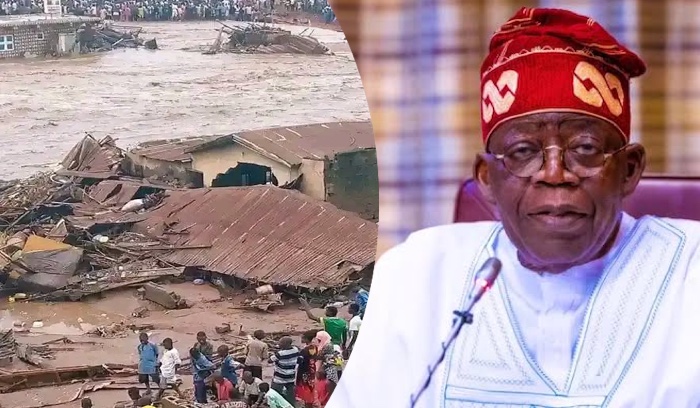418
By Tracy Moses
The Mokwa Flood Relief Support Group (MFRSG), a grassroots volunteer organization based in Mokwa, Niger State, has expressed appreciation to President Bola Ahmed Tinubu and Governor Mohammed Umar Bago for their swift intervention following the devastating flood that claimed numerous lives and displaced thousands of residents in Mokwa Local Government Area.
According to the group, the federal government’s relief package, delivered through Vice President Kashim Shettima, includes a ₦2 billion resettlement fund, 20 trucks of assorted grains, and a power transformer to restore electricity in affected communities.
Similarly, Governor Bago, upon returning from an overseas trip, visited the flood-affected areas and approved ₦1 billion to immediately move displaced residents from Internally Displaced Persons (IDP) camps into temporary rented accommodations. He also directed the distribution of truckloads of grains and allocated ₦7 billion for the repair and reconstruction of damaged roads and bridges.
Despite these commendable efforts, the MFRSG is calling on the Niger State Government to involve Mokwa indigenes in the rehabilitation and resettlement committee to ensure a more inclusive and transparent process.
In a statement released on Monday and signed by the group’s Secretary, Barrister Suleiman Ndaguye, the MFRSG emphasized the need for trusted community members, who possess local knowledge of Mokwa’s terrain and settlement structure, to be part of decision-making efforts, especially as the process faces political undercurrents.
Speaking on the broader implications of the disaster, MFRSG Chairman and retired Assistant Controller General of Customs, Alhaji Ahmed Nasir, underscored the importance of long-term solutions beyond emergency aid. He stressed that the flood disaster should serve as a wake-up call for the government to implement permanent infrastructure and drainage systems to curb recurring flooding in Mokwa and surrounding communities.
While acknowledging the efforts made so far, Alhaji Nasir warned that some victims risk being excluded from the relief efforts if community voices are not integrated into the implementation framework.
“The Mokwa Flood Relief Support Group appreciates the timely interventions by both federal and state governments,” he stated. “However, to achieve sustainable recovery and ensure fairness, we urge that local representatives be included in the committees, as they are better placed to verify and authenticate affected families, both indigenes and non-indigenes.”
He also called on both tiers of government to act swiftly in fulfilling the promises made to the people of Mokwa, stressing that the issue requires a comprehensive and sustained approach.



